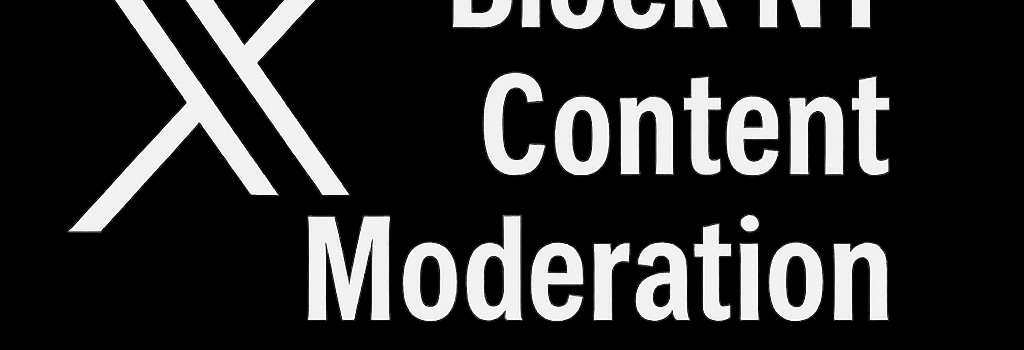X Sues to Block NY Content Moderation Law After CA Win

In the wake of its successful challenge to California’s content moderation transparency law, X Corp. (formerly Twitter) has filed suit in New York to enjoin enforcement of a nearly identical statute. The company argues that the New York law, like California’s before it, violates the First Amendment by compelling politically charged disclosures and targeting X and its owner, Elon Musk, based on viewpoint discrimination.
Background: California Settlement and First Amendment Ruling
Last year, X prevailed in federal court against California’s Assembly Bill 587, which required social platforms to publish quarterly reports detailing removal and demotion of content categorized as hate speech, harassment, or misinformation. The US District Court granted a preliminary injunction, finding the statute likely unconstitutional under the “compelled speech” doctrine. Key points included:
- Overbreadth: The law’s broad definitions could sweep in constitutionally protected political speech.
- Compelled Disclosure: Forcing platforms to create and publish custom transparency reports was deemed government speech, infringing on private editorial discretion.
- Procedural Due Process: Platforms faced steep penalties—up to $10,000 per day—without clear standards or administrative oversight.
New York Legislation and Political Context
In May 2025, New York enacted Social Media Transparency Act (SMTA-25), mirroring AB 587’s requirement for detailed disclosures on content moderation actions. Penalties escalate to $15,000 per day. SMTA-25 demands platform-level statistics on:
- Hate speech removal
- Misinformation labeling
- Harassment mitigation
- Algorithmic demotion metrics
When X sought to engage New York legislators to address the California ruling, Senator Brad Hoylman-Sigal and Assemblymember Grace Lee declined, citing Musk’s history of controversial posts that the lawmakers say undermine democratic discourse. The refusal letter states:
“Because of the disturbing record on the part of your client, X, and its owner, Elon Musk, that threatens the foundations of our democracy, we must refuse your request.”
Legal Arguments and First Amendment Implications
In its complaint, X contends that SMTA-25 is “tainted by viewpoint discriminatory motives,” amounting to government compulsion of speech. Specific First Amendment claims include:
- Viewpoint Discrimination: Targeting X and Musk based on perceived ideological bias.
- Compelled Speech: Forcing bespoke disclosures that frame moderation as political decisions.
- Vagueness and Overbreadth: Lack of precise definitions leads to self-censorship and chilling of protected speech.
Constitutional experts compare SMTA-25 to cases like Wooley v. Maynard (1977) and NAACP v. Claiborne Hardware (1982), where courts struck down statutes compelling speech or punishing protected expression.
Technical Implementation Challenges
Realizing SMTA-25’s reporting mandates would require platforms to instrument complex moderation pipelines. Core challenges include:
- Integrating real-time machine learning classifiers for hate speech, which achieve only 70–85% accuracy, leading to false positives and labor-intensive human reviews.
- Designing an immutable audit log system that tracks each content action while preserving user privacy, perhaps using cryptographic techniques like Merkle trees or zero-knowledge proofs.
- Scaling storage and encryption of terabytes of moderation metadata to satisfy quarterly publication without violating data protection laws such as GDPR.
Content operations specialists warn that forced transparency could incentivize platforms to over-remediate to avoid public scrutiny, harming free expression.
Comparative Analysis with Other Jurisdictions
Unlike the patchwork of US state laws, the European Union’s Digital Services Act (DSA) establishes a harmonized framework. The DSA mandates:
- Risk assessments and independent audits for very large online platforms (VLOPs).
- Quarterly transparency reports with standard templates and enforcement by the European Commission.
- Tiered penalties up to 6% of global turnover, imposing a uniform compliance baseline.
The contrast underscores the risk of fragmented regulation in the US, where platforms must adapt to conflicting state requirements.
Industry Impact and Expert Commentary
Other major platforms—Meta, YouTube, TikTok—already publish transparency reports voluntarily. Legal scholars like Professor Eugene Volokh argue that state-mandated disclosures undermine editorial autonomy without enhancing user trust. Cybersecurity experts note that mandatory publication of moderation data could expose models to reverse-engineering attacks, enabling adversaries to evade detection.
Next Steps and Outlook
- Federal Preemption Debate: Whether Congress should enact a uniform national standard to preempt state laws.
- Potential Supreme Court Review: X’s case could ascend on appeal, providing definitive guidance on compelled speech in the digital era.
- Emerging Technical Solutions: Adoption of privacy-preserving transparency logs leveraging blockchain and ZK-proofs to reconcile openness with user confidentiality.
As X pursues injunctive relief seeking a jury trial, stakeholders across Big Tech, civil liberties groups, and state legislatures will watch closely. The outcome may define the contours of online speech governance for years to come.